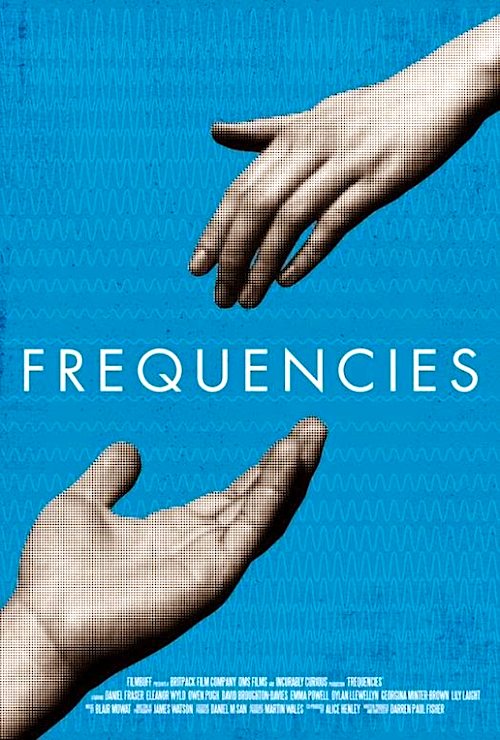By Joe Bendel. If a name conveys a child’s future potential then Marie-Curie Fortune’s is indeed apt. Conversely, Isaac Newton Midgely is more of a Midgely than a Newton. The slogan of their near futuristic world is “knowledge is destiny,” but in practice your bio-metric “frequency” really determines your lot in life. Midgely will try to alter his hard-coded destiny in Darren Paul Fisher’s Frequencies (a.k.a. OXV: The Manual), which opens in New York this Friday, hitting iTunes the day before.
Sort of like The Force or just plain luck, one’s frequency measures how well you fit into the world around you. Someone with a high frequency is never late or klutzy. Everyone responds to them positively. However, Fortune’s abnormally high frequency almost entirely crowds out her capacity for emotions. In contrast, Midgely is a genius, but he has a negative frequency. Whenever they meet at school, sparks fly, much in the manner of matter encountering anti-matter. Things become so chaotic a sixty second limit is imposed on their presumably random meetings. Of course, Midgely happens to be smitten with Fortune, who sort of leads him on, out of scientific curiosity and a lack of empathy.
Flashing forward to adulthood, we find Midgely still has not gotten over Fortune, but he may have developed a means of moderating frequencies, with the help of his old school chum, Theodor Adorno Straus. By lowering her frequency, Fortune is finally able to take pleasure from life. She even thinks she has fallen in love with Midgely, but when the nature of Straus’s breakthrough device becomes apparent, all bets are off.
 Many decent genre films are built around a good gimmick, but become increasingly conventional as they progress. Frequencies is the rare film that begins with an intriguing Macguffin, the social predetermination of frequencies and Midgely’s attempt to change them, but morphs it into something even bigger and archetypal, uniting science fiction and fantasy, while raising the stakes for everyone.
Many decent genre films are built around a good gimmick, but become increasingly conventional as they progress. Frequencies is the rare film that begins with an intriguing Macguffin, the social predetermination of frequencies and Midgely’s attempt to change them, but morphs it into something even bigger and archetypal, uniting science fiction and fantasy, while raising the stakes for everyone.
Granted, post-Tarantino, temporal shifts are annoyingly over-used and often distractingly unnecessary, but Fisher’s triptych structure heightens the significance of each big revelation. This is a film with genuine logical integrity that fits together remarkably well. Those familiar with the Marxist sociologist Adorno’s boneheaded criticism of jazz might have a leg up discerning his namesake character’s ultimate significance. Regardless, Frequency’s combination of social science fiction and philosophical inquiry set it worlds apart from most star-crossed love stories.
As the teen-aged Fortune and Midgely, Georgina Minter-Brown and Dylan Llewellyn give remarkably assured performances. Although we cannot properly call it chemistry (given the circumstances), the way they play off each other totally pulls the audience in. Fortunately, they have nearly as much screen time as their adult counterparts, who are the film’s real weak link. Their drab lack of charisma might make sense in the case of Daniel Fraser’s Midgely, but it leads to credibility problems in the case of Eleanor Wylde’s Fortune. Fortunately, some key supporting players help carry them, especially David Broughton-Davies as the mysteriously wise Mr. Straus. Keep your eye on him.
It would be spoilery to explain why, but Frequencies is also a wonderful valentine to classical music. Smart and engaging, it is one of those inventive science fiction films that have no need of splashy effects or fancy set pieces. Instead, it relies on the power of its ideas (how novel). Highly recommended for science fiction fans and musicians, Frequencies opens this Friday (5/23) at the Cinema Village and will be available from iTunes on Thursday.
LFM GRADE: A-
Posted on May 19th, 2014 at 12:07pm.